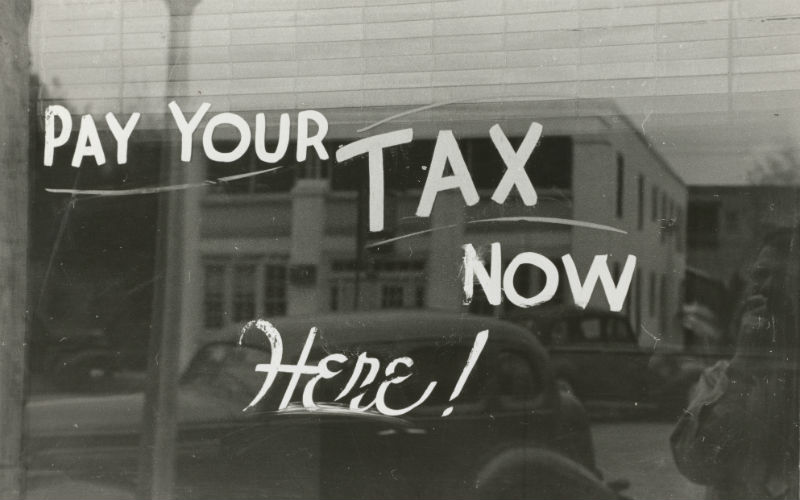Plenty of Australians got a nasty surprise last year when for the first time, they received a tax bill instead of a credit.
The 22/23 Financial Year was the first without the lower-middle income tax offsets, affecting many who had become accustomed to a juicy refund each year.
This time around, Director of Tax Communications at H&R Block Mark Chapman doesn't expect similar shocks.
"The [lower-middle income tax offsets] has gone, it's ancient history, so there won't be that transition period this year," he told the Savings Tip Jar podcast.
"Most people can expect to receive about the same size refund as last year...alternatively, about the same size payable."
That doesn't mean you should just fill out your tax return this year on autopilot though - as Mr Chapman pointed out, it's still well worth your time to maximise your deductions.
"Large reductions lead to larger refunds...you should really be drilling down into those to make sure you're getting everything you're entitled to," he told the podcast.
For Aussies looking to get the most from their tax return (while avoiding the ire of the ATO), Mr Chapman had several pieces of advice.
'Unusual' tax deductions?
Mr Chapman said there are deductions those with 'unusual' occupations might be unaware they can claim.
"If you're a musician, you can potentially claim the cost of musical instruments for example, or the cost of music lessons," he said.
And if you're one of the growing number of Australians earning a living on platforms like OnlyFans, Mr Chapman says the same rules still apply.
"If you're in the adult entertainment business, there are all sorts of things which you wouldn't think are claimable for tax which actually are claimable - toys, lubricants, and so on, provided they are used for professional purposes."
Last minute purchases?
As always, there has been a marketing push from retailers across the nation advertising hot sales in the final days of the financial year.
Employees who buy tax deductible assets for work for less than $300 before 30 June can claim an instant write off for this year, while more expensive purchases need to be claimed through depreciation over time.
If you're a small business owner however, this year is your penultimate opportunity to make a major claim using the $20,000 instant asset write off.
"[This] means you can basically go out and purchase a capital item...a laptop or a computer, equipment, tools for example, and claim an immediate deduction for the cost, provided the actual cost is less than $20,000 per item," Mr Chapman explained.
As it stands, this scheme will run until this time next year, but if you buy before the end of this FY, it could give your tax return a major boost.
"If you need to go and buy a capital item, absolutely take advantage," Mr Chapman said, although he cautioned against doing so for the sake of it.
"That's not really a sound strategy," he said.
However, remember you aren't getting all that money back - you are only reducing your income. If you earned $70,000 and claimed $300 successfully, you'd be taxed as if you'd earned $67,700.
So, spending money just to boost your refund is not necessarily an economically-viable strategy.
Work from home expenses
Millions of Australians will also likely be making a deduction for work from home related expenses.
Once again, Mr Chapman said the easiest way is the fixed cost method, where you simply claim 67 cents per hour worked from home, for day to day WFH expenses like internet and phone bills or electricity costs.
"[Fixed cost] is better than the alternative method, which is the actual method," he said.
That means working out, for example, the exact portion of your internet use that goes towards working, which Mr Chapman says can be "terribly burdensome".
"You've got to keep records, got to keep receipts, invoices for every single expense, and you've also got to do an apportionment exercise, you've got to work out the size of your home office compared to the size of your house," he said.
However, the actual cost method can result in a bigger claim; it's an effort versus reward scenario.
At the same time, Mr Chapman also cautioned that the ATO would likely be looking closely at WFH deductions this year, given it made up the majority of the $8.7 billion tax shortfall last year.
That means the ATO thinks it received $8.7 billion less than it should have (about 1.6% of the total tax revenue), and Mr Chapman expects it to be further cracking down on 'double dipping' this time around.
"For example, if you claim mobile phone [expenses] there is an element of mobile phone included within the 67 cents per hour fixed rate," he said.
"You can't claim a separate deduction for mobile phones...if they see that, you can expect to get a 'please explain'."
Picture by Kelly Sikkema on Unsplash



 Harrison Astbury
Harrison Astbury
 Harry O'Sullivan
Harry O'Sullivan

 Emma Duffy
Emma Duffy
 Dominic Beattie
Dominic Beattie

